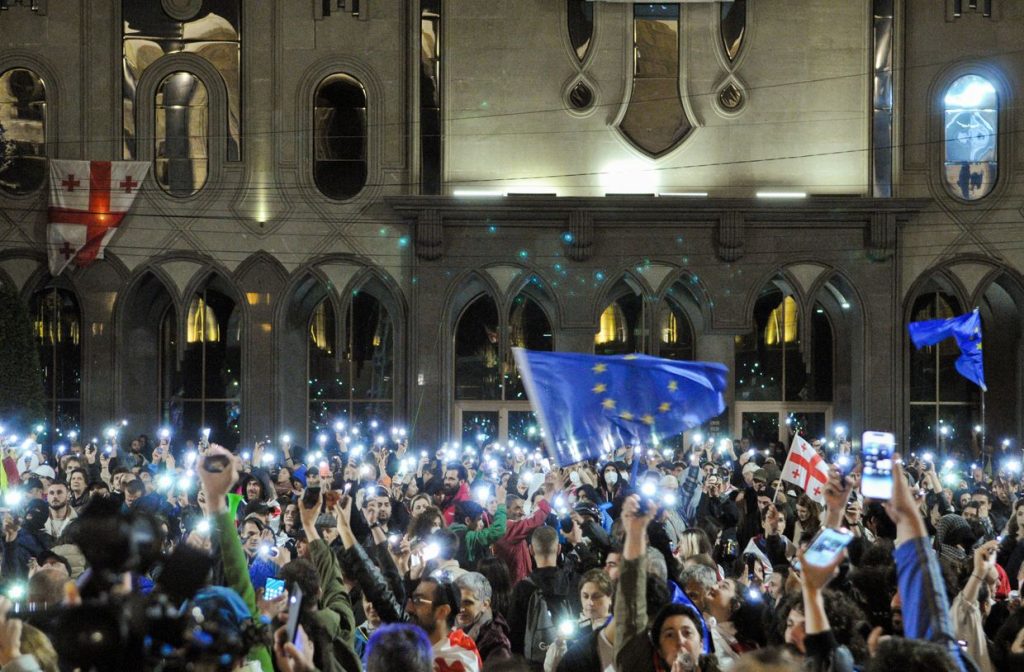In Tbilisi, Georgia, 20 people, including two U.S. citizens, were arrested during anti-government protests on May 13. One of the Americans arrested was identified as Patrick Hernandez-Ball from California. The protests were in response to the ruling Georgian Dream party’s attempt to pass a controversial foreign agents draft law, which is likened to repressive Russian laws used to suppress criticism of the Kremlin. The protests have been ongoing, with tens of thousands of people participating daily. Georgian police have been using tear gas, water cannons, and rubber bullets to disperse the protesters, leading to reports of individual protesters being targeted and beaten.
Another conflict is unfolding in Vovchansk, where civilians are fleeing under Russian bombardment as a ground offensive on Kharkiv begins. This marks the first serious push by Russia to take territory across the border since the area was liberated from Russian occupation in 2022. The situation in Vovchansk has become a focal point of the new offensive, with civilians seeking safety from the ongoing conflict. As tensions escalate, the impact on the local population and the surrounding areas remains a cause for concern, with the potential for further violence and displacement.
As the situation in both Georgia and Ukraine continues to escalate, there is a growing need for support and solidarity. Independent journalism plays a crucial role in reporting on these conflicts and providing valuable information to the public. By supporting independent journalism in Ukraine and other regions affected by violence and unrest, individuals can contribute to the fight for truth and transparency. Journalists on the ground face risks and challenges in reporting on these conflicts, and their work is essential in shedding light on the realities faced by civilians and communities impacted by violence.
The crackdown on protesters in Georgia and the escalation of conflict in Ukraine highlight the challenges facing democracy and human rights in the region. The targeting of protesters and the use of force by authorities raise concerns about the erosion of civil liberties and freedom of expression. In Ukraine, the ongoing conflict underscores the humanitarian impact of war and the need for international support to protect civilians and uphold human rights. The international community must continue to monitor these situations closely and advocate for peaceful resolutions to prevent further escalation of violence and instability.
Amidst these challenges, grassroots movements and civil society organizations play a vital role in advocating for peace, justice, and democracy. The resilience of protesters in Georgia and Ukraine demonstrates the power of collective action in demanding accountability from governments and upholding the rights of all citizens. By standing in solidarity with these movements and supporting their calls for justice and democracy, individuals can contribute to positive change and promote a more just and equitable society for all. The active engagement of citizens in promoting human rights and democratic values is essential in building a more inclusive and peaceful world for future generations.


